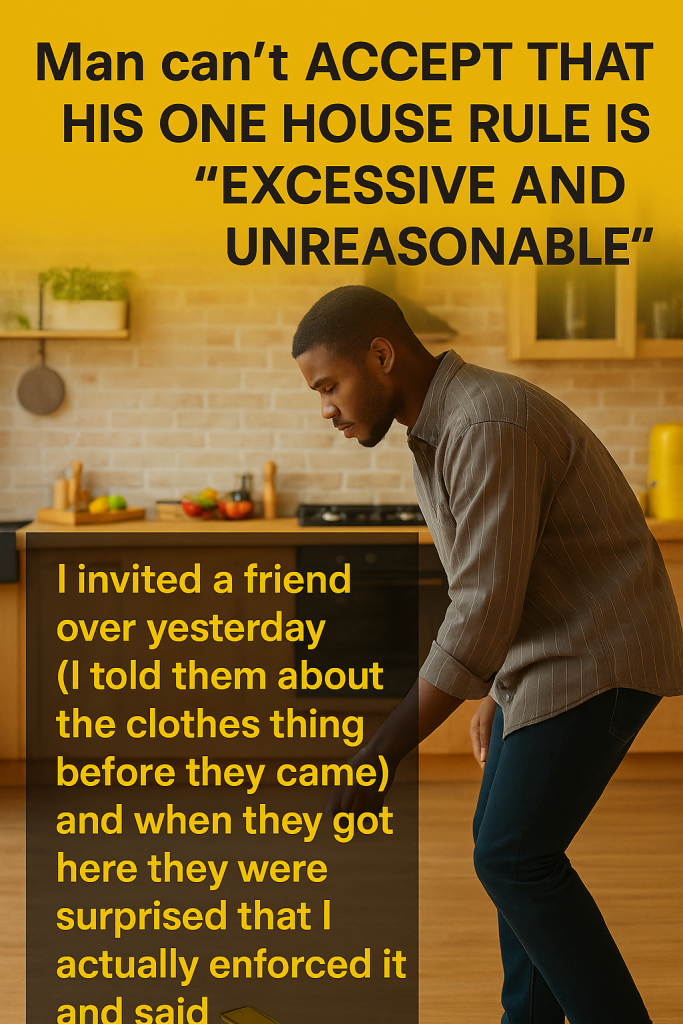A seemingly simple house rule has ignited a heated debate on social media, captivating users worldwide and dividing opinions over what is considered reasonable in a home setting. At the center of the controversy is a man who insists that his one specific house rule is neither excessive nor unreasonable—despite widespread online disagreement.
The story began when the man, whose identity remains anonymous, shared a post explaining that he had invited a friend over the previous day. According to his recount, he made his friend aware in advance of a critical house rule involving a clotting disorder—a medical condition he apparently contends necessitates strict limitations during visits. The details of this rule were not fully disclosed, but it reportedly requires guests to follow certain protocols to accommodate his medical needs and minimize risk.
However, when the man expressed frustration at accusations of being overly controlling or unreasonable, social media users quickly weighed in. Many found his rule to be excessive, citing it as an example of rigid boundaries detracting from natural social interactions. Others empathized with the man, acknowledging the importance of accommodations related to personal health and well-being.
Internet Reaction: A Divided Community
As the post went viral, responses flooded the comments sections of various platforms, sparking lively discussions about personal boundaries, hospitality, and respect for individual needs within a home environment.
Some users argued that, while hosts have the right to set house rules, the core purpose of inviting friends is to foster comfort and enjoyment. They contended that demanding compliance with what they called a “stringent” or “over-cautious” rule risks alienating guests. One commenter wrote, “If a rule makes your friend feel like they’re walking on eggshells, maybe it’s time to rethink its necessity.”
Others in the debate emphasized the man’s perspective, highlighting that managing a clotting disorder can involve life-threatening complications. These supporters stressed that any perceived inconvenience is outweighed by the need for safety and the prevention of medical emergencies. “Health comes first,” one user stated. “We should respect people’s boundaries, especially when medical conditions are involved.”
Understanding Medical Contexts in Social Settings
This controversy reflects a broader conversation about how invisible illnesses and disabilities create unique challenges in social spheres. Clotting disorders, which affect how blood coagulates and can contribute to dangerous clot formation, often require patients to avoid certain triggers or environments. Without strict precautions, patients are at increased risk for complications such as deep vein thrombosis or pulmonary embolism.
Experts caution that awareness and accommodation of such conditions are essential to inclusive social experiences, yet they also note the importance of clear, compassionate communication to avoid misunderstandings or feelings of exclusion among friends and family.
A Lesson in Compromise and Communication
While neither side of the online dispute can be said to be definitively right or wrong, the episode serves as a timely reminder that personal boundaries—especially those linked to health—must be balanced with hospitality and empathy. Clear dialogue and mutual respect remain key to navigating house rules that may initially seem challenging to guests.
For now, the man maintains his stance on the necessity of his rule, despite widespread social media pushback. The debate continues, inviting all of us to consider how health, friendship, and personal space intersect in our most private environments.



